Nearly three years into the Trump administration and less than two years until Angela Merkel has said she would step down as chancellor of Germany, Americans and Germans continue to have notably different perspectives on the relationship between their countries, according to the latest in a series of surveys conducted in both nations by Pew Research Center and Körber-Stiftung.
Americans are optimistic about the bilateral relationship and want to cooperate more with Germany in the future. They also see the U.S. military presence in Germany as very important to American national security. Germans, for their part, see the two countries’ relationship as strained and place less importance on the American troop presence for their own country’s national security.
Here are eight charts that summarize the findings of the surveys, conducted in September 2019:
1 Three-quarters of Americans see relations with Germany as good, while nearly two-thirds of Germans (64%) see relations as bad. And only 2% of Germans say the relationship with the U.S. is very good, compared with 13% of Americans.
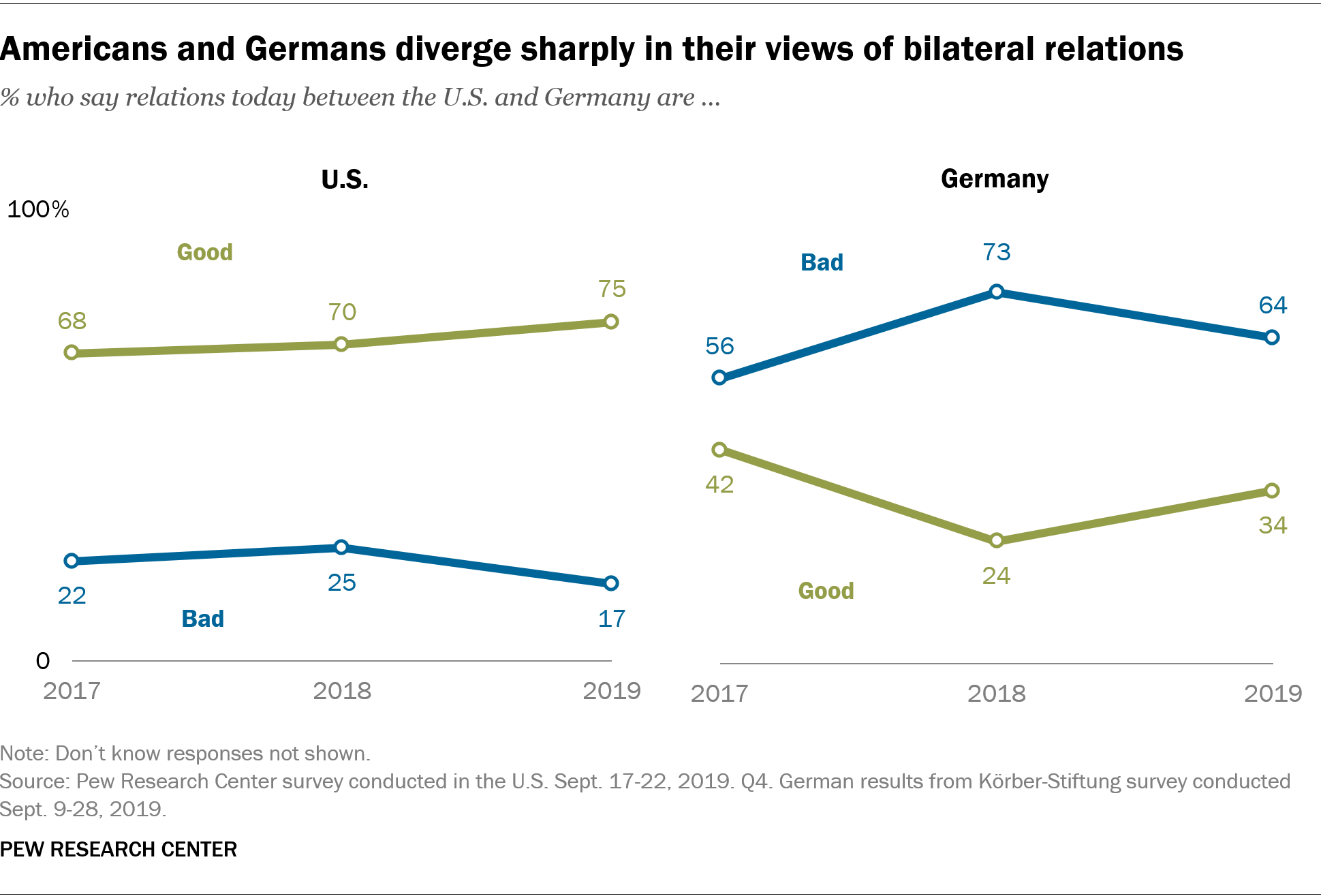 Despite this disconnect, views have become more positive in Germany over the past year: The share of Germans who say the relationship between the United States and Germany is good has risen from 24% in 2018 to 34% this year. But while Germans are now more positive about the relationship than in 2018, their outlook is still more negative than in 2017.
Despite this disconnect, views have become more positive in Germany over the past year: The share of Germans who say the relationship between the United States and Germany is good has risen from 24% in 2018 to 34% this year. But while Germans are now more positive about the relationship than in 2018, their outlook is still more negative than in 2017.
Americans’ evaluation of the bilateral relationship, on the other hand, is at its highest point in three years of surveys.
2 Americans and Germans differ over which country is most important to their own nation’s foreign policy. In the U.S., people are most likely to name the UK (36%) as the most or second-most important foreign policy partner for the U.S. Only about one-in-ten (13%) name Germany, ranking it fifth on Americans’ list.
In Germany, about four-in-ten (42%) name the U.S. as their country’s most or second-most important foreign policy partner, second only to France (60%). This represents a 7 percentage point increase in Germans naming the U.S. as the most or second-most important foreign policy partner since 2018.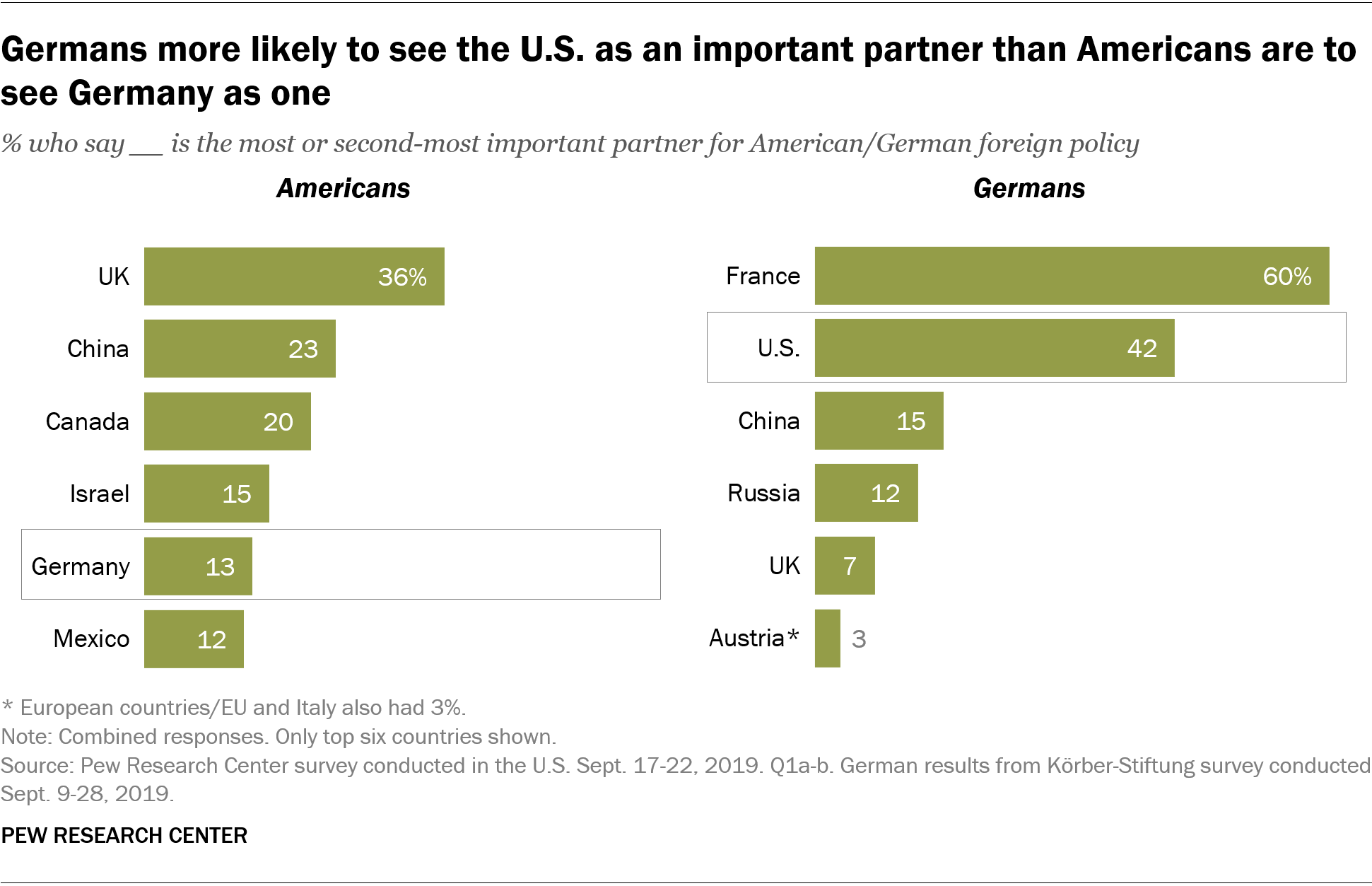
3 Americans are more likely to prioritize greater cooperation with Germany than Germans are to prioritize increased cooperation with the U.S. About seven-in-ten in the U.S. (69%) want more cooperation with Germany, compared with half of Germans (50%) who want more cooperation with the U.S. Instead, Germans are most likely to say they want greater cooperation with France (77%) and Japan (69%) among the countries tested.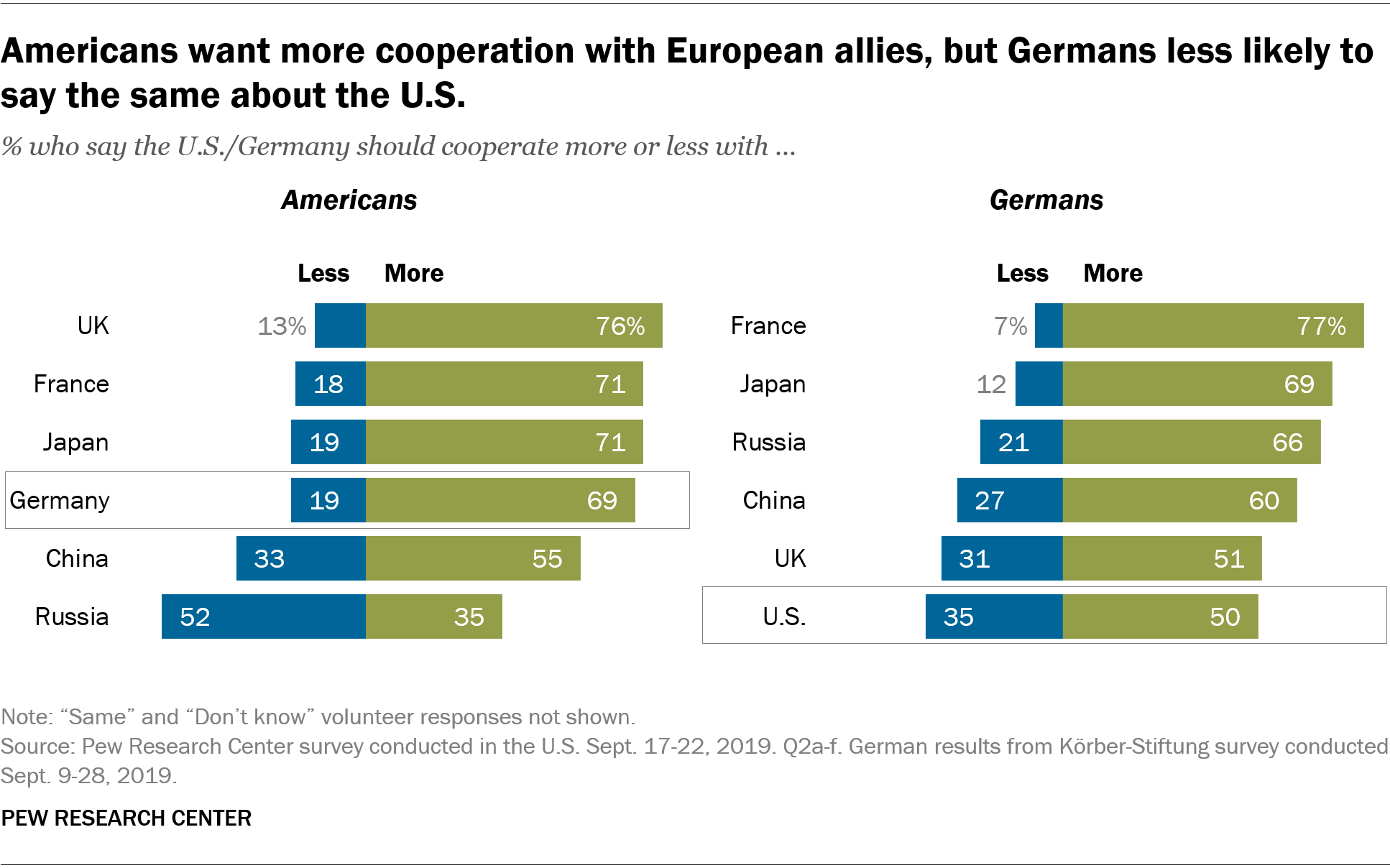
Germans are much more likely than Americans to say they want more cooperation with Russia (66% vs. 35%). And 52% of Americans want to cooperate less with Russia.
About three-quarters of Americans (76%) want more cooperation with the UK, while about half of Germans (51%) say the same.
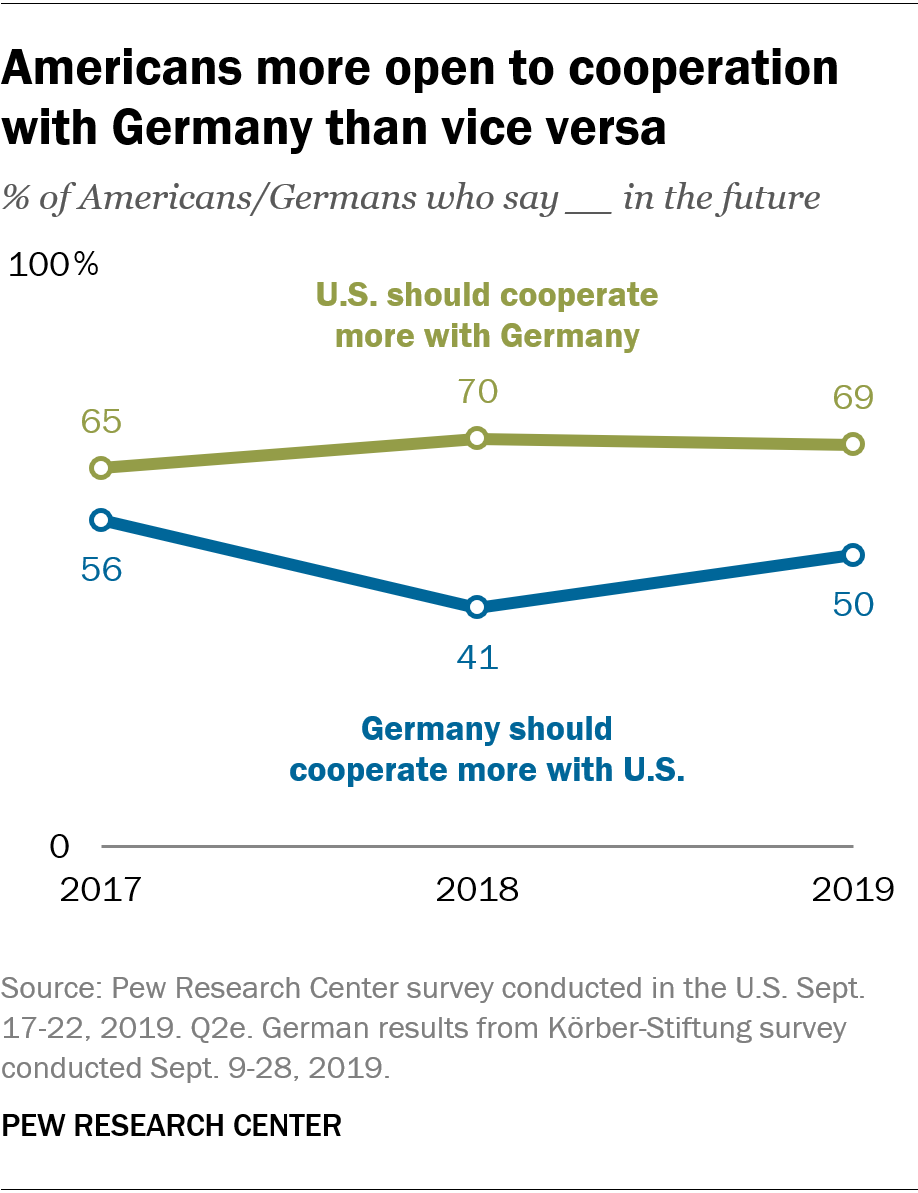 4 Americans have consistently been more eager to cooperate with Germany than the other way around. This year, people in the U.S. are 19 percentage points more likely to say their country should cooperate more with Germany than Germans are to say the same about the U.S. Nonetheless, the share of Germans who want more cooperation with the U.S. has increased by 9 points this year, bringing it closer to 2017 levels.
4 Americans have consistently been more eager to cooperate with Germany than the other way around. This year, people in the U.S. are 19 percentage points more likely to say their country should cooperate more with Germany than Germans are to say the same about the U.S. Nonetheless, the share of Germans who want more cooperation with the U.S. has increased by 9 points this year, bringing it closer to 2017 levels.
5 Americans want their country to have a closer relationship with Germany than with Russia, while many Germans see value in having close relations with both the U.S. and Russia.
Around six-in-ten Americans (61%) say it is more important for the U.S. to have a close relationship with Germany than with Russia, while 26% say the opposite. About one-in-ten (8%) volunteer that both relationships are important.
In Germany, 39% say it is more important to have a close relationship with the U.S. than with Russia, while a quarter say the reverse. But three-in-ten Germans volunteer that both relationships are important. Since 2018, there has been a 10-point increase in the share of Germans who see both relationships as important and a 7-point decrease in the share who say the relationship with Russia is more important than the relationship with the U.S. (32% said this in 2018).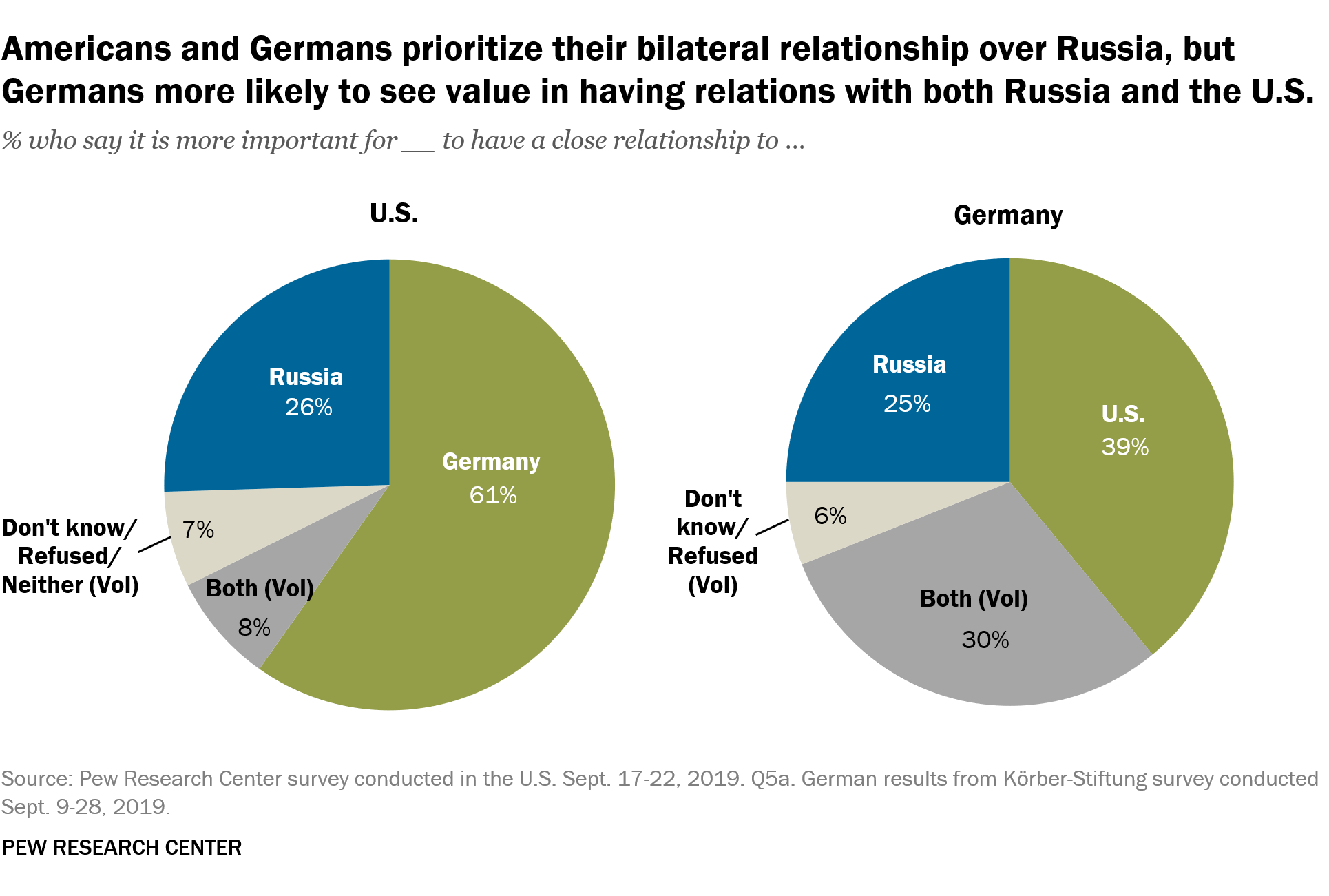
6 Americans are split over whether it’s more important to have a close relationship with Germany or China, but Germans prioritize their country’s relationship with the U.S. over China.
Half of Germans say it is more critical to be close to the U.S., while only 24% say China is more important (18% volunteer both). On the other hand, 44% of Americans say the relationship with China is more important, and an almost equal share says Germany is (41%).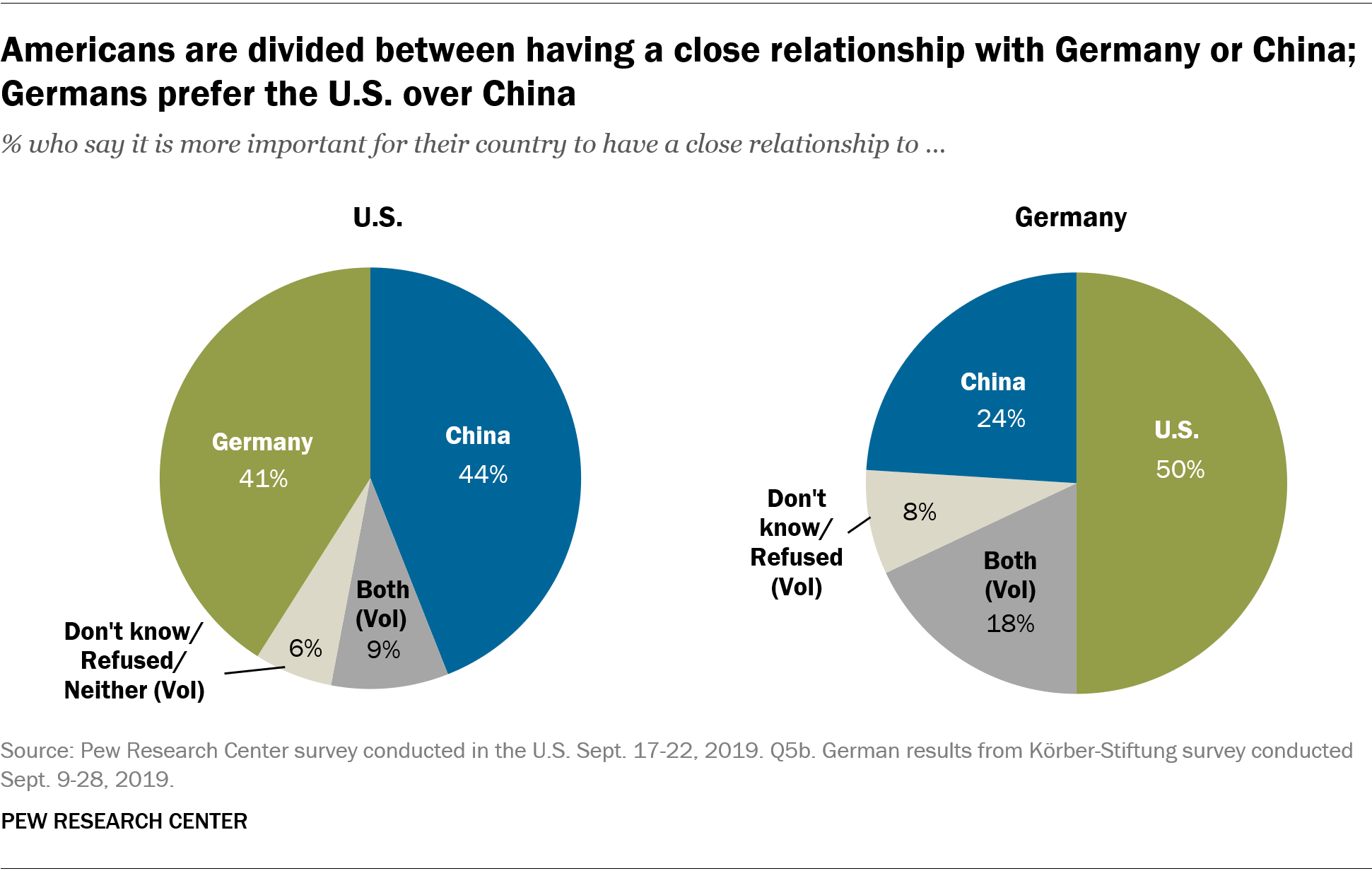
7 An overwhelming share of Americans (85%) see U.S. military bases in Germany as important for U.S. national security, but fewer Germans (52%) see these bases as important for their own national security.
The United States currently operates several military bases in Germany, with approximately 35,000 active-duty American troops, a legacy of World War II and the continued NATO presence in Europe.
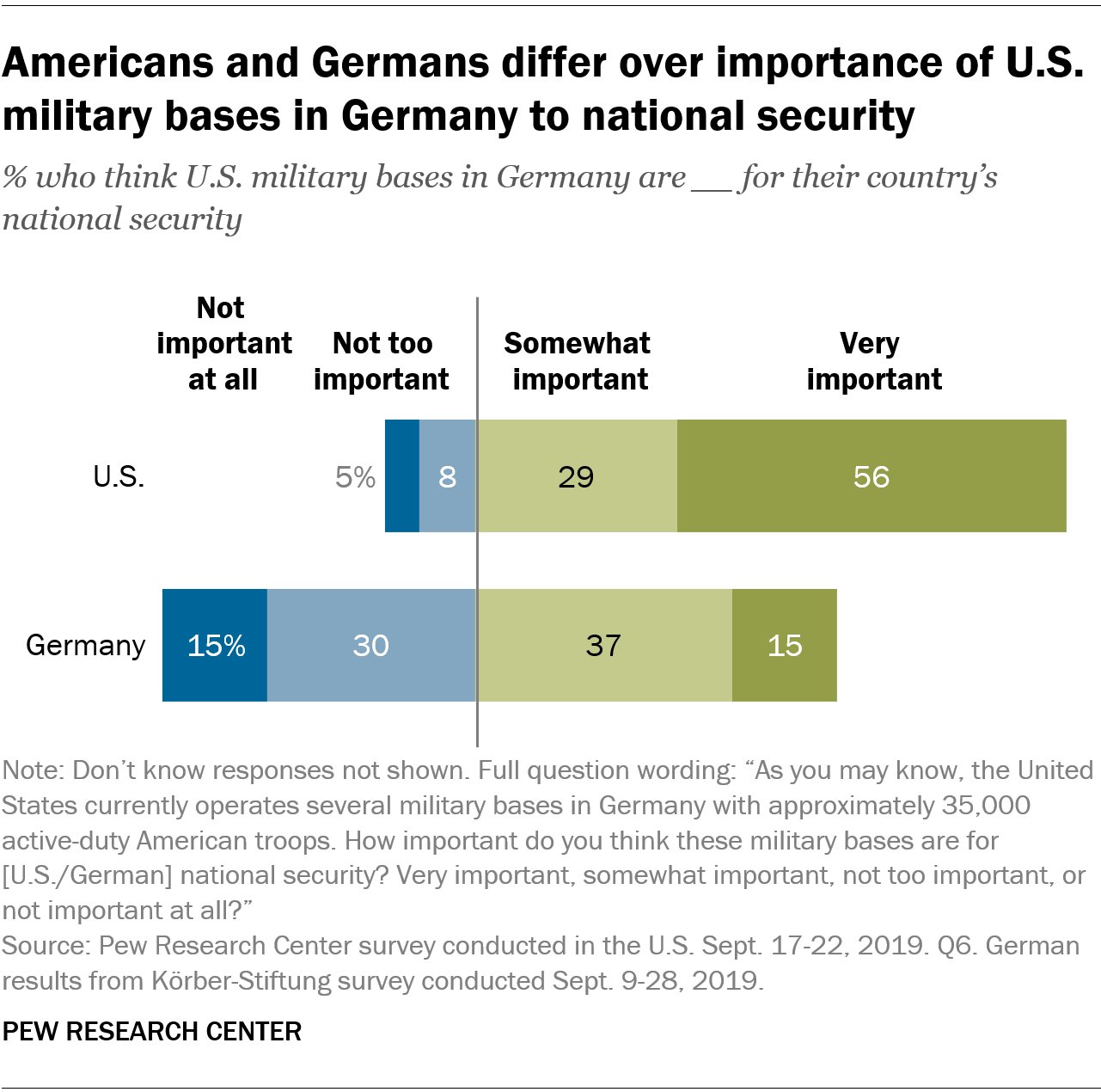
More than half of Americans (56%) see these bases as very important to U.S. national security, and only 13% of Americans claim these bases are not important.
Among Germans, 52% say these American troops are vital for German national security, although only 15% claim they are very important. And 45% of Germans say the bases are not important, including 15% who say they are not at all important.
8 Americans are generally OK with European defense spending at current levels, but Germans are more divided about their own country’s defense spending.
Half of Americans say that their European allies should keep national defense spending at current levels, while 35% say these allies should increase their defense spending. Only around one-in-ten (9%) say European allies should decrease their defense spending.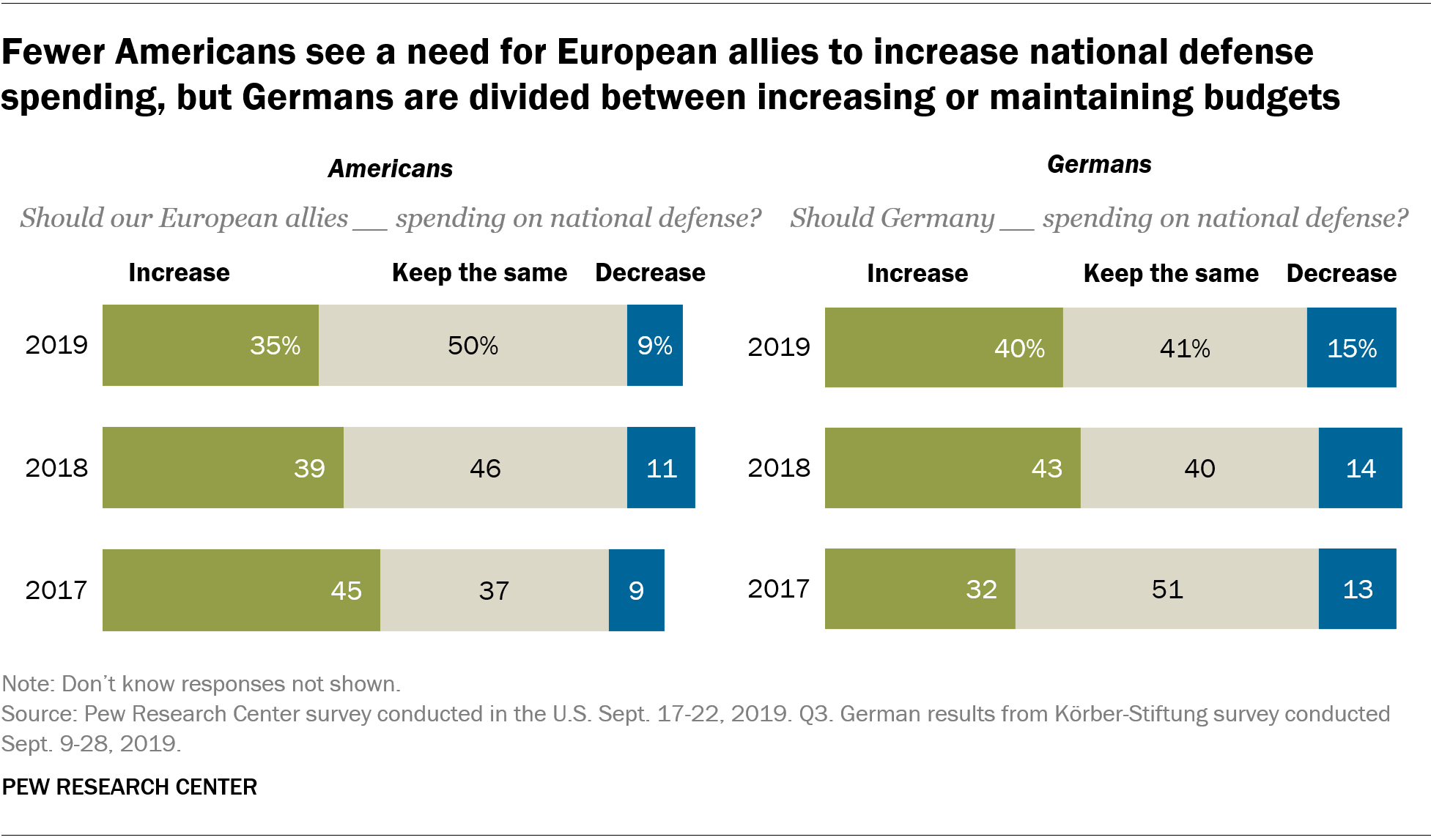
Germans are more divided. Around four-in-ten favor increasing their own defense budget (40%) or keeping it the same (41%), while 15% support a decrease.
Since 2017, there have been shifts in both countries on this subject. Americans have become less likely to say their European allies should increase defense spending (45% said this in 2017, compared with 35% this year). Germans have become more likely to favor increased defense spending in their country (32% said this in 2017, compared with 40% this year).
Note: See full topline results and methodology here and the full dataset here.




